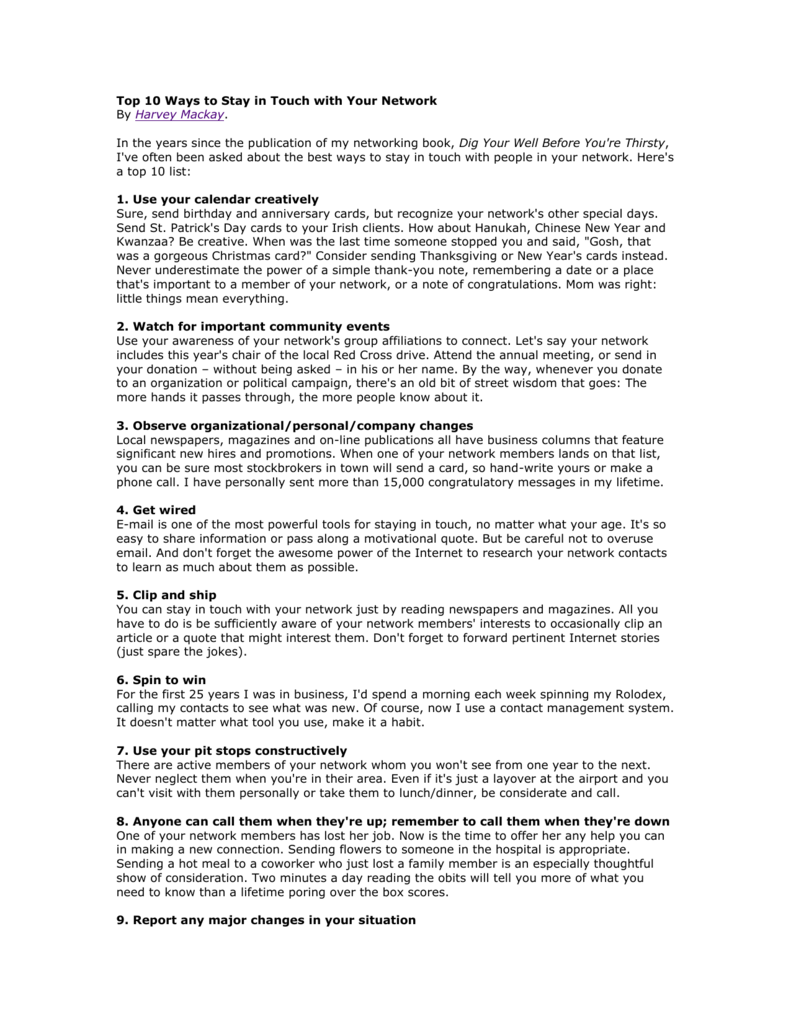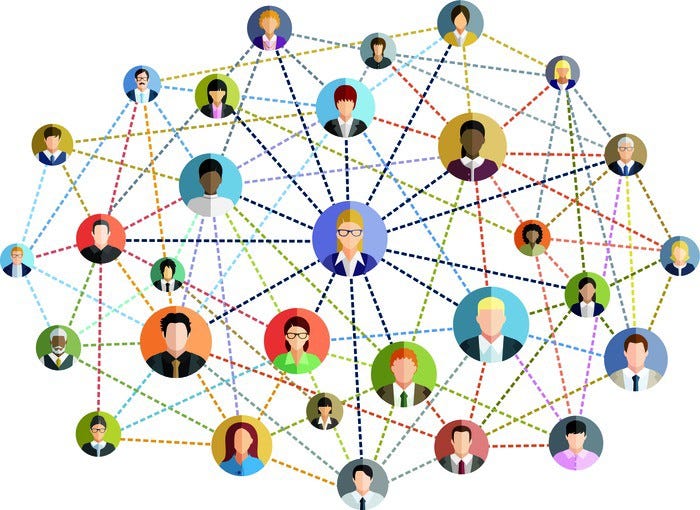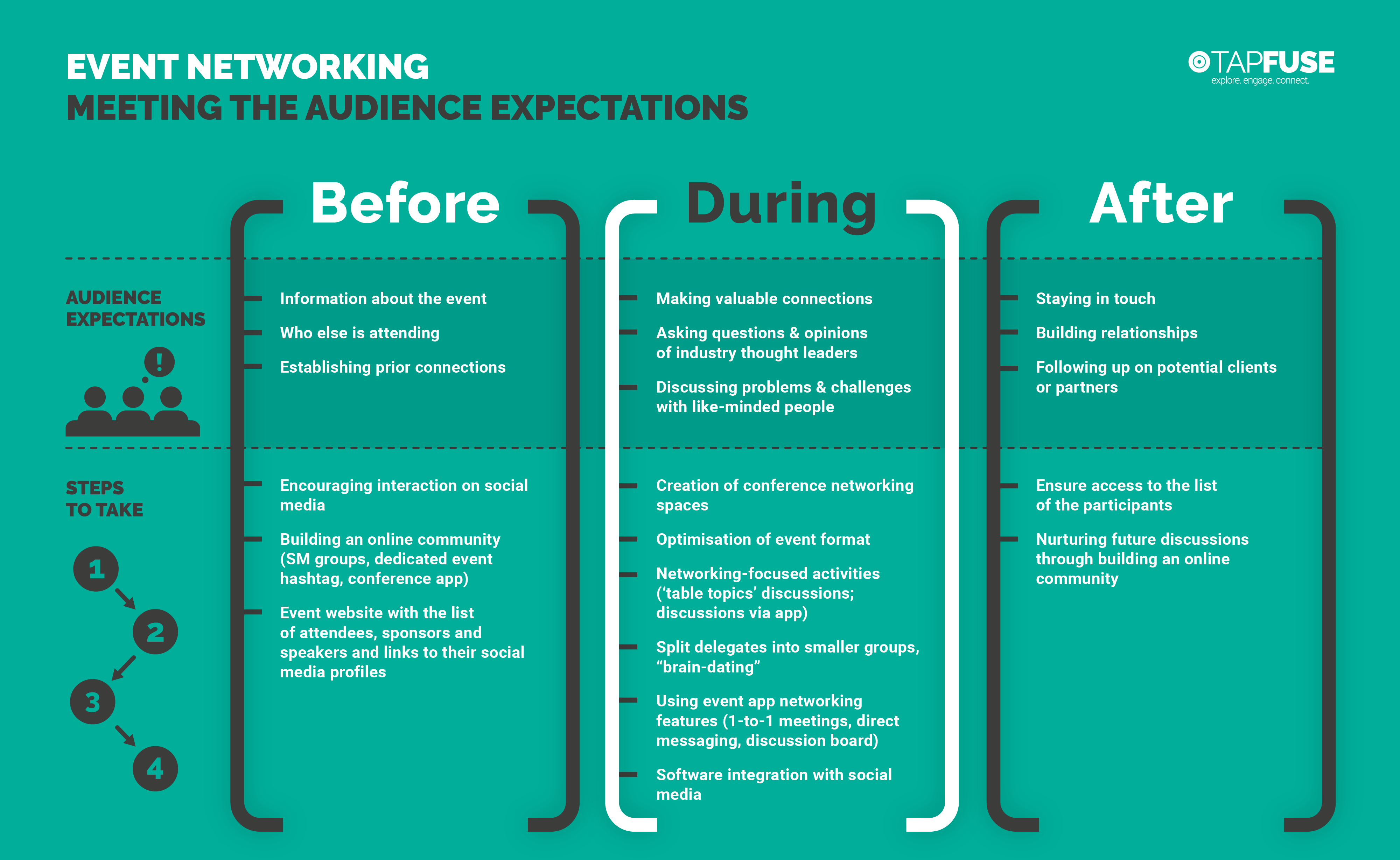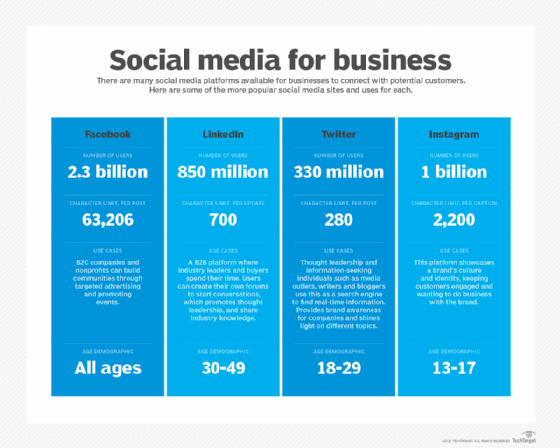In this post we will talk about networking (not the computer one but social one). We will explain what networking is, why it is so important for creative industries and how or where should people start doing it👇
What is networking?
Networking is the action or process of interacting with others to exchange information and develop professional or social contacts. People generally join networking groups based on a single common point of interest that all members share. 👬
Types of networking:
- In-person Networking - groups of professionals gather together and make connections on events such as: trade shows, seminars, conferences, workshops, career fairs etc.
- Online Networking - Professional networking platforms provide an online location for people to engage with other professionals, join groups, post blogs, show of your resume and share information. Linkedin is a good example of such a platform.
Why is networking important in the creative industries?
Networking is important because it helps all professionals, especially ones from creative industries to meet new people, often very influential and helpful ones. It also helps with developing long-lasting relationships, finding new co-workers, teachers and even clients. 👭
However, networking is not all and only about meeting new people but also about:
- finding out about new job opportunities
- increasing your awareness of news and trends
- getting some advices and support from more experienced people
- exchanging ideas
- making you, your business and work noticeable
- improving your creativity
- using it as an extra source of information
- growing and developing your career status
- getting more confident
How to start networking?
You have to remember that there are many ways to network with people and allof them are correct. You can start netowrking online, during real life events or by doing both. Whichever method you choose, you have to remember that you already know how to network. You've done it every day with people since you were a child while bonding with your family, meeting your school friends and friends from work. Professional networking is very similar, it's just connecting with others with some professionalism added to whole relationship. 👍
There are few tips on how to start networking:
- While networking don't be all about business. Be real, try to really connect with a person before bringing up the professional matters.
- Know your bounderies, try to understand, listen to and really focus on people you talk with to avoid any misunderstandings.
- Remember that you can network with people you already know, find out more about them and connect with them more. Eventually some of them might introduce you to their friends too.
- Always assume that ff someone’s worth approaching, their time is probably more valuable than yours. By that you will learn approaching people with something to offer or to help them. Don't expect anything in return, it's about the gesture and making a good impression.
- Don’t be a person who contact your networks just when you need something. Keep your relationships alive by reaching out to your contacts regularly.
- While looking for a job never ask for it directly. You will avoid putting someone in an awkward position, if they would want you to work for them they will make a proposition themselves when you will politely ask for just an advice or some information instead.
- Don't be negative, be open-minded and optimistic. You have to show people your brightest side.
- Remember to not only sit around your co-workers, get to know new people too. If you never roam outside of your social circles, you’ll never get further than where you’re now.
- Update your online networking platforms and show people that you are active.
Researching your discipline area before you start networking
It's important to take some time to explore your options before committing to a specific networking group as number of networking opportunities available to people looking to start or advance their careers is constatly growing. Target your time and efforts toward those groups that best fit your needs and interests. Once you become a member of some networking group you need to show others that you are a contributing member of it. You also need to observe which members are the most valuable and influential. Always think about a mutual benefit and don't approach someone if you have nothing to offer or no way to help that person. Don't be greedy and don't just try to approach the "top" members of the group. You never know who might end up being better and more helpful friend. Get to know people first and don't avoid conversations with anyone. Remember, the more people in a group like you, the more chances you get to be the "top" member yourself. 💼
Online Networking vs In-person Networking
No matter if in-person or online, networking is about focusing on people and building relations. There are some differences between those two methods but there shouldn't be any differences of how you treat people or behave while you practice them. 👇
✅ Online Networking advantages:
- Free or very low cost
- Larger networking scale
- Convenience and comfortable as it can be done at any time and place
- Lack of pressure
- Deliberate and specific
- Easy to reach out to people
❌ Online Networking disadvantages:
- It's easy to get rejected, ignored or blocked by people
- Takes a long time to gain any trust or create a relationship
- It can be very monotonous as you can spend hours just on writing and sending loads of “feeler” messages
- You can get scammed very easily
✅ In-person Networking advantages:
- Allows you to connect on a personal level which is more meaningful and real
- Helps you build deeper and more personal connections
- You are recognized easier as people know how you look like
- Responding in real time, chance to speak up
- Makes you understand people better (and vice versa) as you see their facial expressions, body language, all movements, gestures and hear the tone of their voices.
- It's easier to see if someone is "that" person you are looking for. You can feel the chemistry and that you "click" with someone.
- Stressing, puts a pressure on a person
- Real-life events cost money
- You can get stuck with someone you don't want to connect with
- Unconvenience as you have to worry about travelling, dressing-up, childcare, missing appointments, etc.
- Many of them are unproductive and just about handing and collecting business cards
- Harder for introverts to meet someone
Best online platforms for networking with potential employers
1. Linkedin 👑
LinkedIn is the world's largest professional network on the internet. It's a platform for anyone who is looking to advance their
career. This can include people from various professional backgrounds,
such as small business owners, students, and job seekers. LinkedIn
members can use LinkedIn to tap into a network of professionals,
companies, and groups within and beyond their industry. You can use this platform to find the right job or internship, connect and
strengthen professional relationships, and learn the skills you need to
succeed in your career.
Find out about it and join LinkedIn here!
2. Facebook 🎯
It's the
My networking strategy
1. Plan Ahead - first think about your interests and needs then join a networking group suitable for them. After that remember to plan every move. Work out what you want to achieve from each conversation. Knowing what you want from each of your contacts will make it easier to approach them confidently. Don't forget that you also need to have something to offer them or to help them. Plan your networking, set bigger goals before every meeting and smaller before every approach.
2. Use Linkedin - an international social media platform specializing in professional and business contacts. It's a great and at the same time most popular platform for online networking. Create a profile, fill it in with information about yourself, your work, hobbies and skills. Then start networking with people from similar proffession areas. Using other social media like Facebook or Twitter will always be helpful too.
4. Nurture your network - set reminders to yourself to reach out every so often to help strengthen your built relationships. Don’t wait until formal networking events to make contact.

5. Create a directory of your network - Create a list and then rank your contacts by how valuable you think
they’ll be to you, and how comfortable you feel approaching them.You can create it before starting all networking (target group of people, potential relationships) and after it (tidying your contacts, ranking the usefullness).
Promoting yourself in professional manner
You should always try to promote yourself and your work while networking. People should know what you are doing for living, what are your interests and skills. Every proffesional needs to know those to develop any relationship or colaboration with you. Sticking to your goals, plans and networking strategy is always a good start, as everyone like people who are prepared, confident and organized. 💡
Promoting yourself on live events:
- Dress-up nicely and elegant, every event have a dresscode depending on the subject field it covers. It will help you fit in the group and make you feel more confident.
- Follow social etiquette, be kind, respectful and cultural
- Hand people business cards and also take ones handed to you. Remeber that before giving anyone your business card you should have a conversation with that person, it should feel appropriate to do it.
- Offer people swag bags if your company/you have any. If someone offers you theirs then even if you don't want it it's nice to at least take some pictures of exhibitors with their swag and make a note of what you liked about their booth/brand on social media.
- Have you phone always with you, but don't use it too often as it seems very ignorant in the company of others. Use it just for emergencies and for notes taking.
- Be active on your social media accounts, socialize with people, answer comments, post and share stuff.
- Use hashtags
- Showcase your work and skills
- Give advices, share ideas and help others
- Establish your online presence (social media platforms, web site, blogs etc)
- Always be a nice and respectful member of a community
- Attend online career fairs and workshops
- Create your own groups and events














Comments
Post a Comment